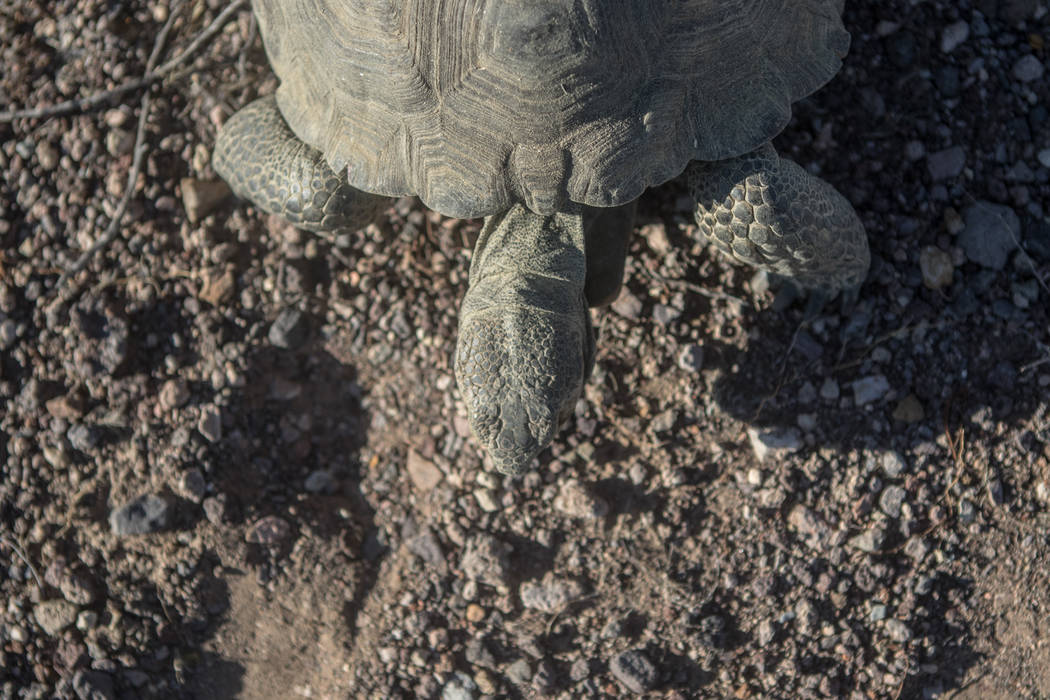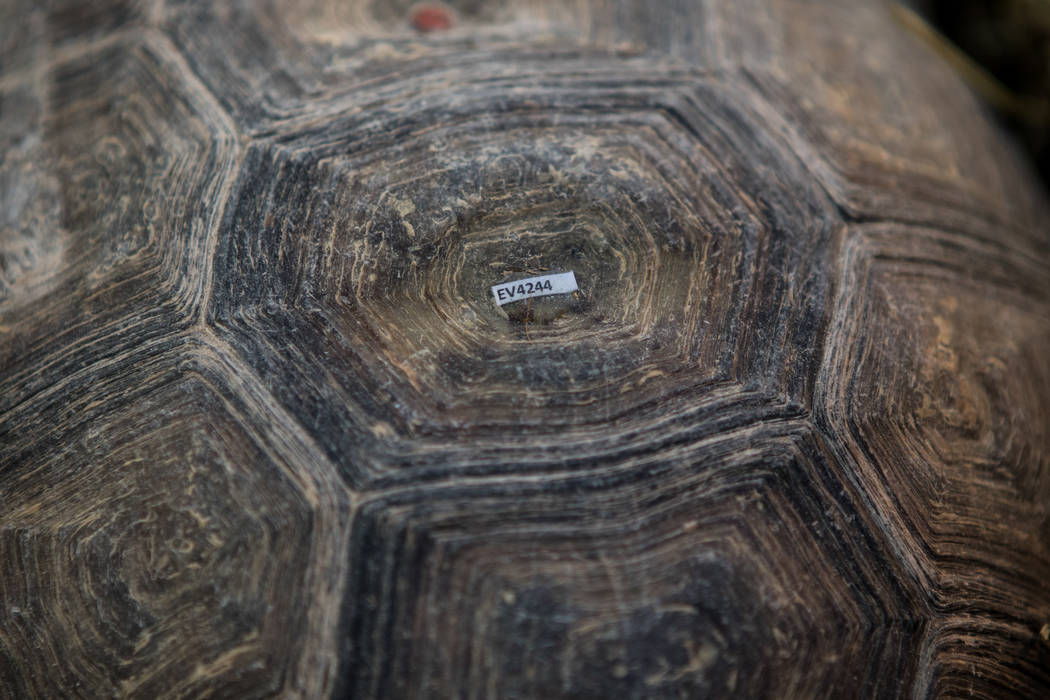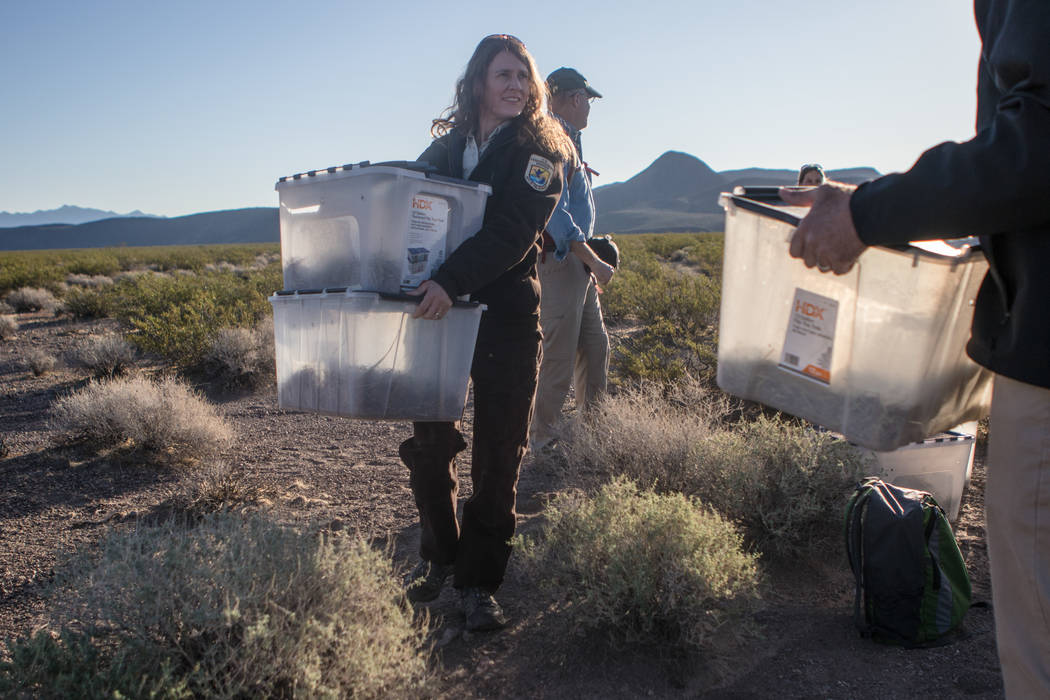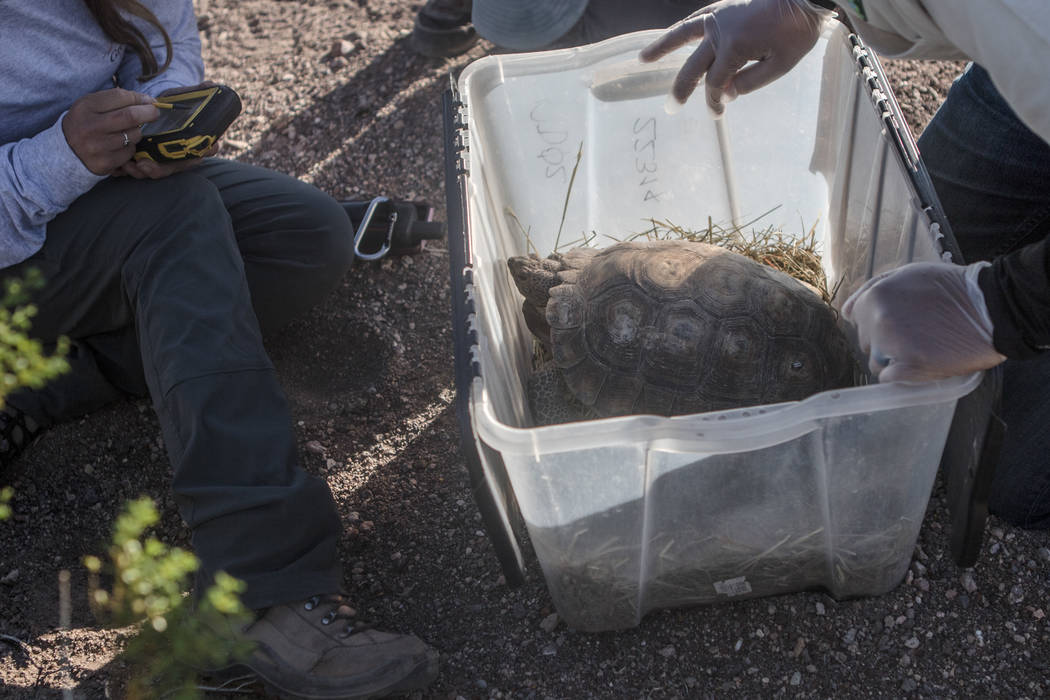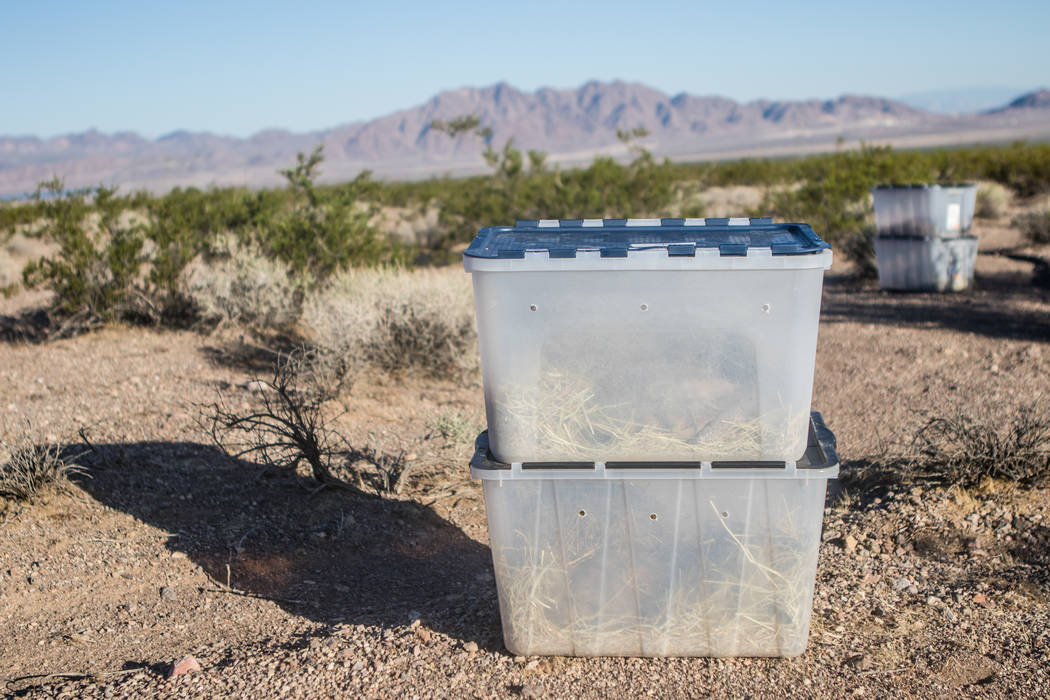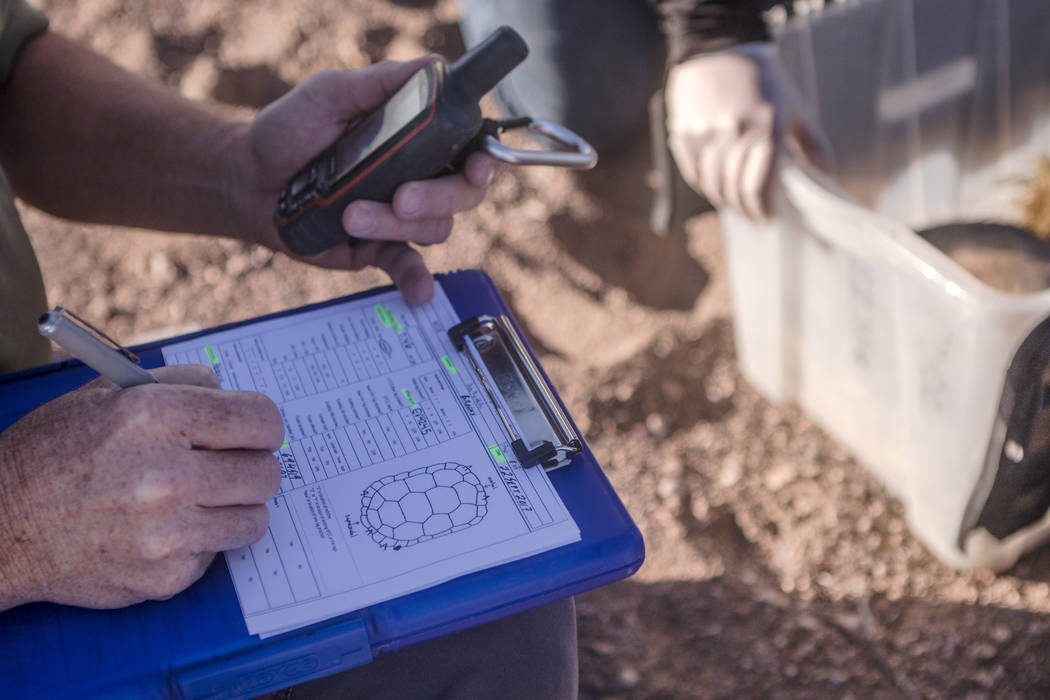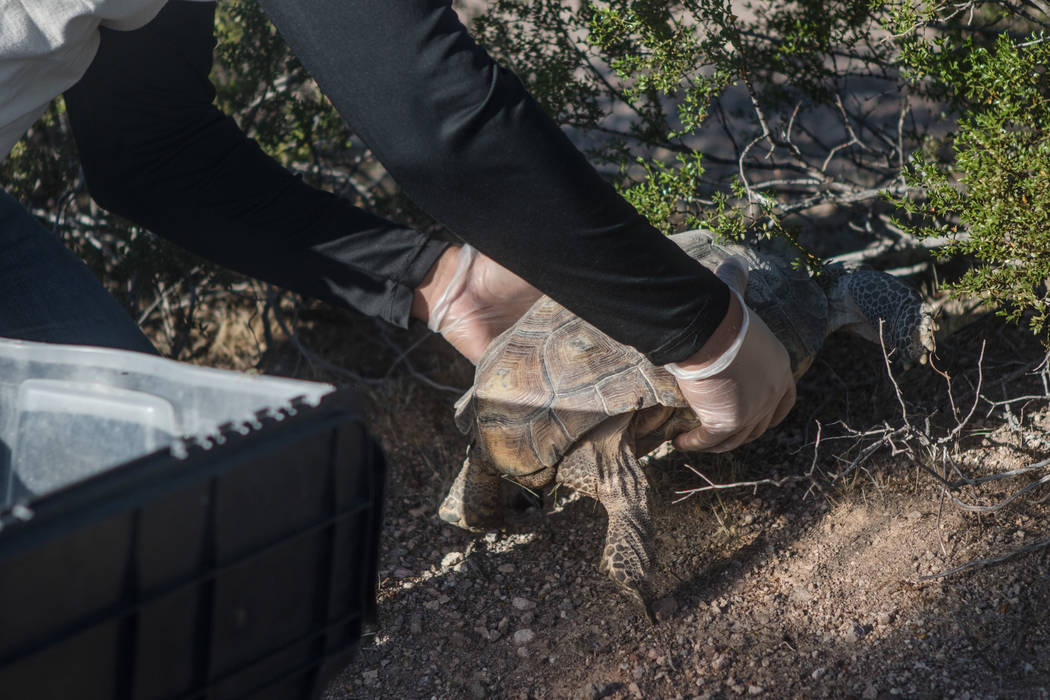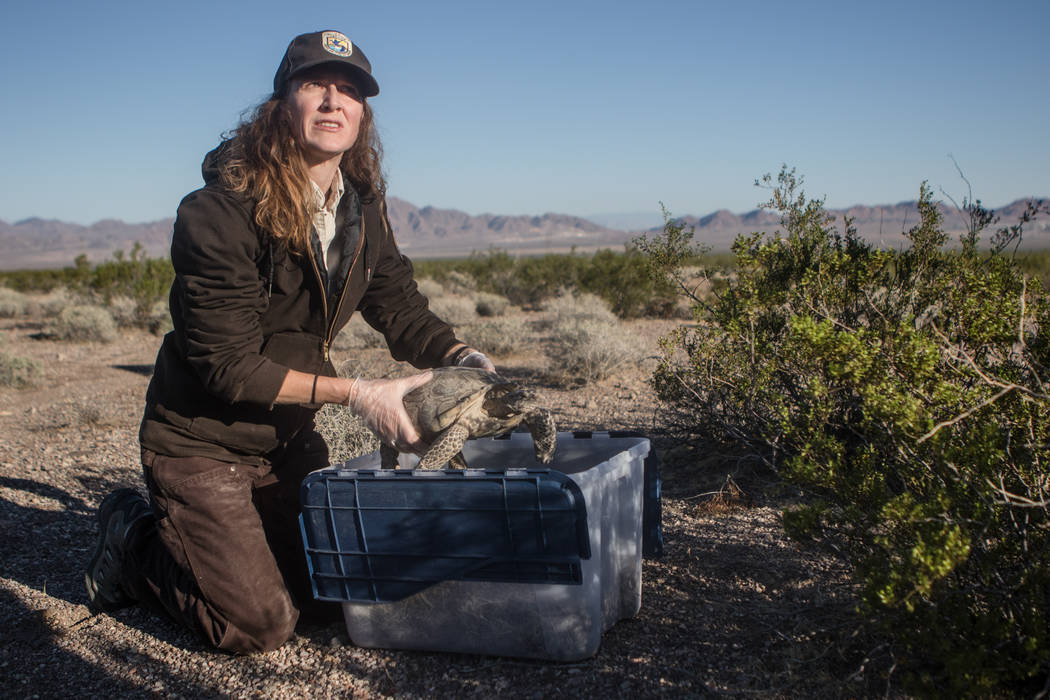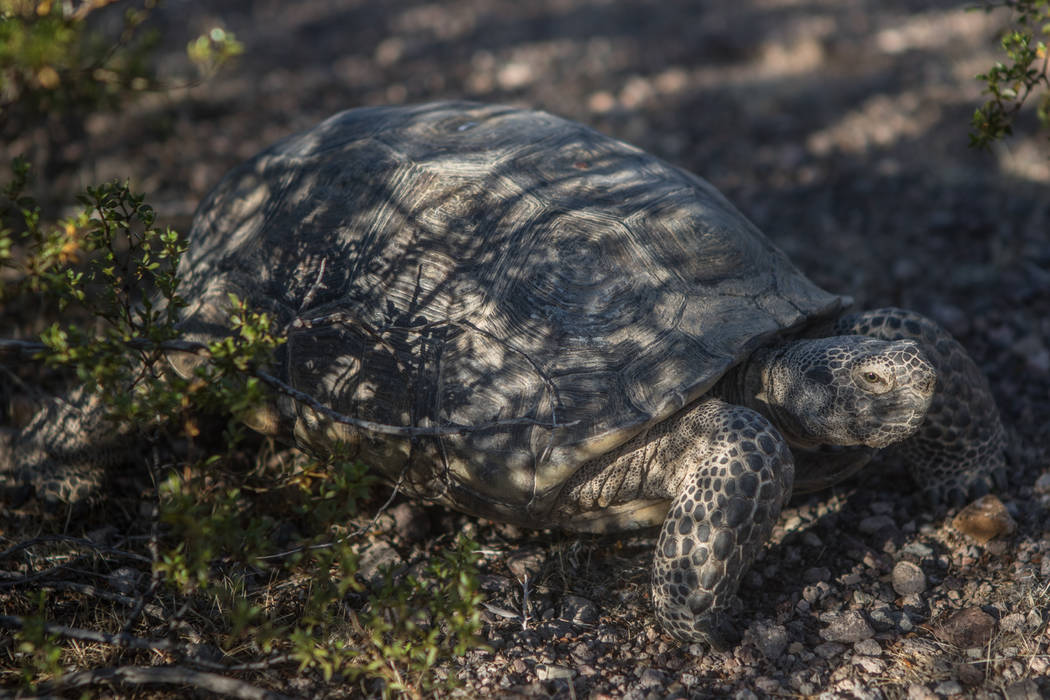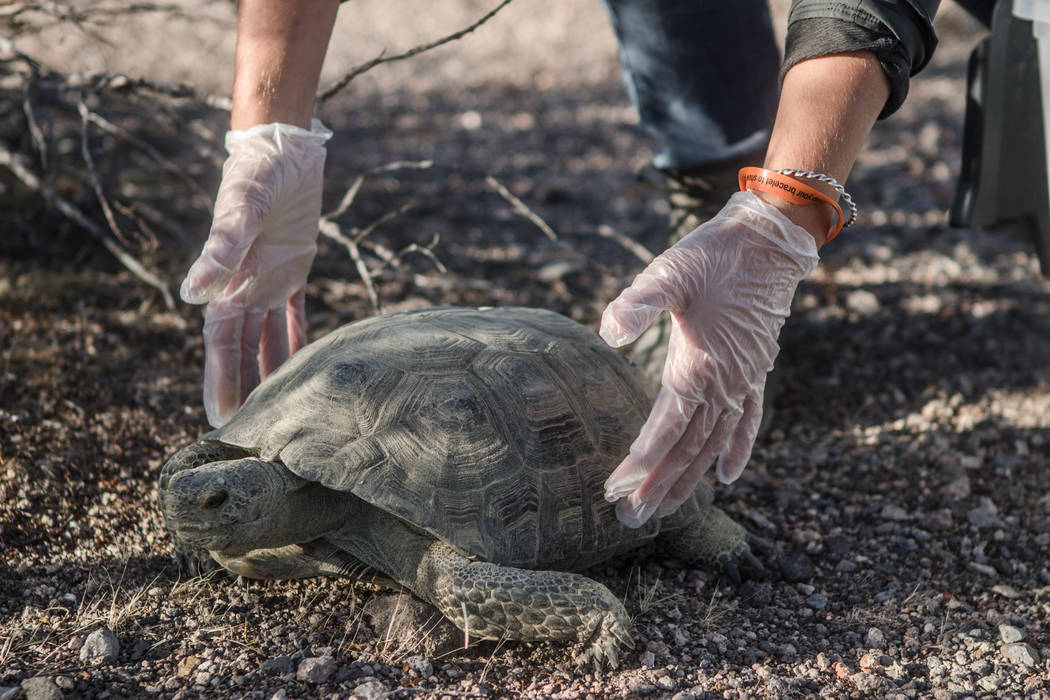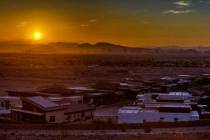Threatened desert tortoises set free south of Boulder City
The desert tortoise with the red marker on its shell spent its first few minutes of freedom sitting motionless in the shade of a creosote bush about five miles south of Boulder City.
Then it stuck its neck out and began to explore its new home, pausing occasionally to snack on rattlesnake weed and other local cuisine.
The tortoise was one of a dozen released Friday morning into the Boulder City Conservation Easement, a 86,423-acre swath of public land set aside in 1995 to conserve habitat for the federally protected reptile.
Another 26 tortoises were set free in the same general area on Thursday, 16 of them with tracking devices glued to their shells. It was the first organized release by the U.S. Fish and Wildlife Service and its partners in Southern Nevada in two years.
Some of the animals once lived in Las Vegas as backyard pets. Others were removed from their native desert to make way for development. And some had recently been research subjects. All of them seemed happy to be free.
I got to watch 12 desert tortoises get released into the wild today. This one walked over and parked himself in my shadow. pic.twitter.com/RB0ePXXhis
— Henry Brean (@RefriedBrean) September 22, 2017
‘They know how to be tortoises’
“These animals probably haven’t seen rattlesnake weed in a long time, and they were eager to eat it,” said Kim Field, a desert tortoise recovery biologist with the Fish and Wildlife Service. “They know how to be tortoises.”
The goal of the release was to boost the population and genetic mix in the conservation easement.
“We’re hoping this will be a good jump-start to this population,” said Roy Averill-Murray, desert tortoise recovery coordinator for the Fish and Wildlife Service.
“We’re trying to do this in a more targeted way,” added Glen Knowles, the agency’s field supervisor for Southern Nevada.
Most of the test subjects turned loose this week once lived at the Desert Tortoise Conservation Center, a federal research and holding facility that operated at the southern edge of the Las Vegas Valley until its funding ran out in 2014.
These were the last ones from the center, used until recently for research by the U.S. Geological Survey. “I think we’re all out now,” Averill-Murray said with a laugh.
The one with the red marker lived at the center longer than any of them — eight years at least, Field said.
All of the tortoises set free this week received a thorough health screening to make sure they were fit for release and likely to survive in the wild. Field said each was injected with saline solution to prevent dehydration and marked with a numbered tag and a code notched into its shell for identification.
A lot of effort has also gone into making the conservation easement as hospitable as possible.
Through its Desert Conservation Program, Clark County has erased miles of tracks left by illegal off-road vehicle use, stepped up patrols and put up fences to keep the tortoises off nearby U.S. Highway 95.
‘Techno-torts’ identify predators
The team even keeps tabs on some of the tortoise’s natural predators by deploying “techno-torts” — fake hatchlings with cameras attached to them. Scott Cambrin, senior biologist for the county, said the cameras have recorded attacks by ravens, coyotes and kit foxes.
The recovery team is currently studying the possibility of installing tunnels under U.S. 95 so tortoises can safely cross the highway and mix with their cousins on the other side, Cambrin said.
The desert tortoise has been listed as threatened since 1989, but its numbers continue to decline across most of its range. Averill-Murray said researchers have seen signs of improvement in some places, but population densities are still lower than they need to be to ensure genetic viability.
Because tortoises can live for 80 years or more and take up to 15 years to reach sexual maturity, gauging impacts to the species and the effectiveness of recovery efforts might take years or even decades.
“The current generation of tortoises that are out here now is older than anyone studying them,” Averill-Murray said. “When we’re trying to figure out what’s going on, it’s a long-term prospect.”
Contact Henry Brean at hbrean@reviewjournal.com or 702-383-0350. Follow @RefriedBrean on Twitter.
Out on the easement
Researchers don't know the exact population of desert tortoises living within the 86,423-acre Boulder City Conservation Easement, but they do know many of them likely arrived there by vehicle.
Since 2014, researchers have driven to different parts of the preserve south of Boulder City to release 139 tortoises into the wild. That total includes 38 adults set free there this week.
Roy Averill-Murray, desert tortoise recovery coordinator for the U.S. Fish and Wildlife Service, said "trans-located" tortoises tend to survive at about the same rate as the natural population, but that doesn't mean they will stay put.
He said a few of the tortoises they released in 2015 eventually found their way around the fences and wandered away from the conservation easement. "They have chosen to leave the study," Averill-Murray said with a laugh. "These decided they didn't want to participate anymore."




